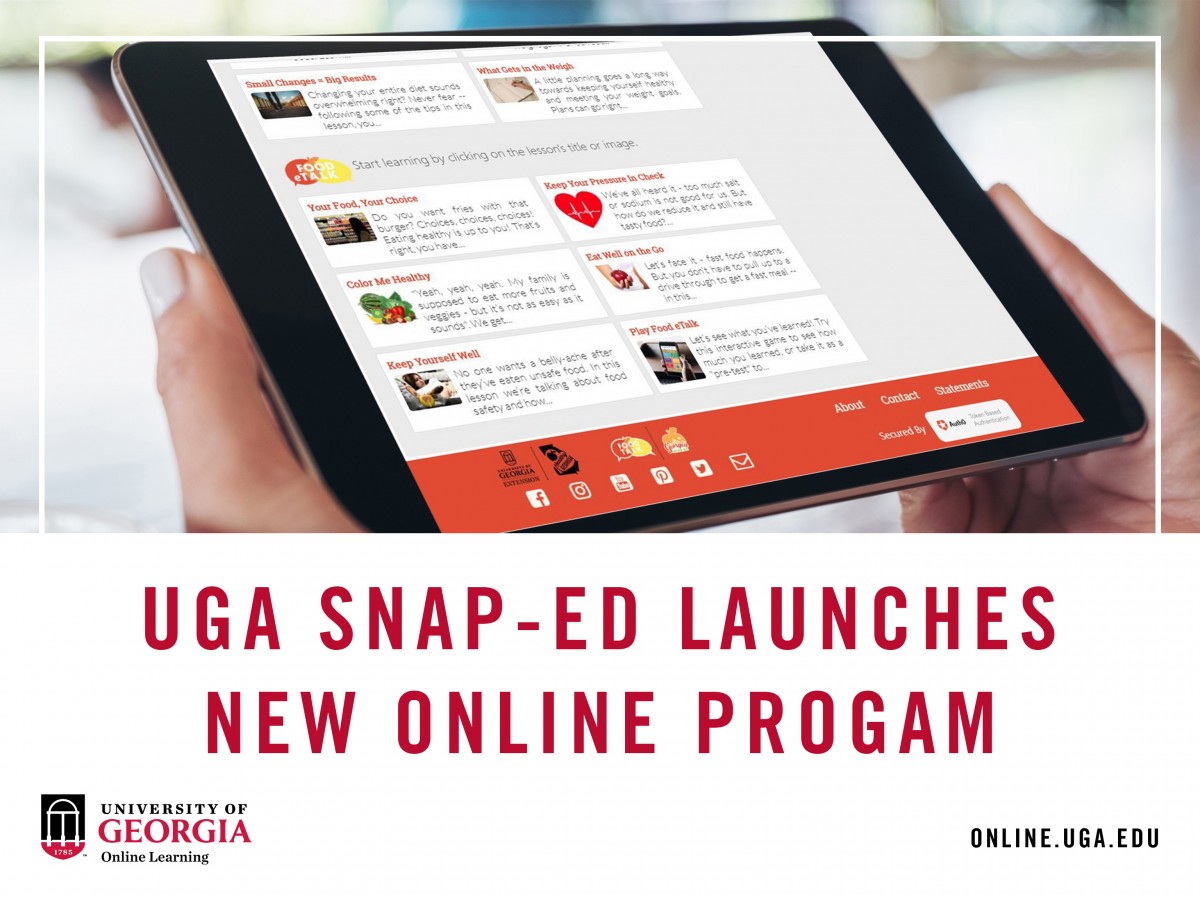UGA’s Food eTalk: The first ever evidence-based online SNAP-Ed program
UGA’s Food eTalk: The first ever evidence-based online SNAP-Ed program
The University of Georgia Supplemental Nutrition Assistance Education Program has launched Food eTalk, the country’s only evidence-based online SNAP-Ed program.
 UGA SNAP-Ed, a nutrition education and obesity prevention program funded by the U.S. Department of Agriculture that targets low-income audiences, is delivered through the UGA Extension network in partnership with diverse stakeholders and communities across the state.
UGA SNAP-Ed, a nutrition education and obesity prevention program funded by the U.S. Department of Agriculture that targets low-income audiences, is delivered through the UGA Extension network in partnership with diverse stakeholders and communities across the state.
Food eTalk is an innovative, smartphone-based eLearning nutrition education program tailored to the specific needs of SNAP-eligible adult Georgians.
The program features six 10-minute interactive lessons, cooking videos and just-in-time learning videos, backed by research conducted by UGA faculty, graduate students and staff within the College of Family and Consumer Sciences.
“Online programming is relatively new to the SNAP-Ed program,” said Jung Sun Lee, UGA Athletic Association Professor in the College of Family and Consumer Sciences. “This groundbreaking nutrition education method allows us to increase our reach and impact. We also wanted to provide contextual learning opportunities, such as point-of-decision making in a supermarket, and allow participants to learn at their own teachable moment.”
Food eTalk includes a mobile-first interface, user-friendly navigation and even a Southern-accented voiceover, in addition to lessons focused on sodium reduction, increasing intake of fruits and vegetables, food resource management principles and food safety.
Historically, SNAP-Ed programming has been offered via in-person food demonstrations in a classroom setting.
“Low-income families, like many others, have busy schedules due to work and other responsibilities,” said Allisen Penn, associate dean for Extension and outreach in FACS. “Food eTalk is available 24 hours a day, seven days a week, so they can access the programming any time and any place convenient for them.”
The UGA SNAP-Ed program reaches around 2 million Georgians a year through direct, online and social marketing interventions and has received more than $20 million in funding since its founding in 2013, she added.
“Our target audience is very tech savvy,” said Edda Cotto-Rivera, UGA SNAP-Ed’s program coordinator. “This is another way of reaching out with the information we want to share with them.”
